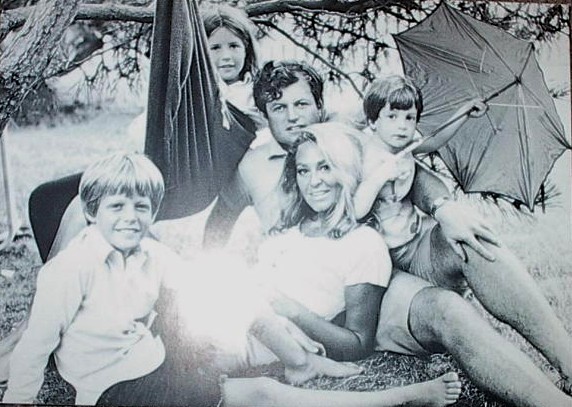Senator Edward M. Kennedy received an honorary degree from Harvard this afternoon, joining a select few so recognized outside of the university's commencement.
Past honorees include George Washington, Nelson Mandela and Winston Churchill.
Kennedy embraced his reputation as a liberal and spoke of the hope sparked by Barack Obama's election as president.
Here are his prepared remarks:
"Now I have something in common with George Washington –other than being born on February 22. It is not, as I had once hoped, being President. It is instead this rare privilege of receiving an honorary degree from Harvard at a special convocation. I am moved and deeply grateful to my university.
"It was exactly one hundred years ago this September that my father entered Harvard College as a freshman—to be followed in the next generation by Joe, Jack, Bobby and then by me. At home and here at Harvard, which became a second home, I learned to prize history, to play football, and to believe in public service.
"It was long ago, but I see it now as fresh as youth and yesterday. And I hope that in all the time since then I have lived up to the chance that Harvard gave me.
"And along the way, I have also learned lessons in the school of life, that we should take issues seriously, but never take ourselves too seriously, that political differences may make us opponents, but should never make us enemies, that battles rage and then quiet.
"Above all, I have seen throughout my life how we as a people can rise to a challenge, embrace change and renew our destiny.
"So there is no other time when I would rather receive this honor than this year— at this turning point in American history.
"Just one month ago, our citizens powerfully re-affirmed the promise of America. That promise has been central to my service, to the contributions of my brothers, and to the age-old dream of millions.
"Long after Abraham Lincoln signed the Emancipation Proclamation, long after Brown v. Board of Education, long after a young Baptist minister stood on the steps of Lincoln's Memorial and called the nation to the dream of equality, the moment finally is here. The time is now, the long march of progress has arrived at one extraordinary day in American history.
"We elected a 44th president who, by virtue of his race, could have been legally owned by the first 16 Presidents of the United States. We judged him, as Martin Luther King said, not by the color of his skin, but by the content of his character and the capacity of his leadership. For America, this is not just a culmination, but a new beginning.
"Because in Barack Obama, we will now have a president who offers not just the audacity, but the possibility of hope for one America, strong and prosperous and free— “from sea to shining sea.”
"I am proud to have played a small part in this giant step forward in our history, and in the public life of this Commonwealth and this country for so many years. 50 years ago, I managed the successful re-election campaign for the junior Senator from Massachusetts, John F. Kennedy. Although I certainly did not anticipate it at the time, I myself have been deeply honored to hold that same seat for the past 46 years.
"During my service in the United States Senate, I have often been called a Liberal, and it usually was not meant as a compliment. But I remember what my brother said about liberalism shortly before he was elected president. He said: “If by a Liberal, they mean someone who looks ahead and not behind… Someone who welcomes new ideas without rigid reactions… Someone who cares about the welfare of the people—their health, their housing, their schools, their jobs, their civil rights, their civil liberties…Someone who believes we can break through the stalemate and the suspicion that grips us… If that is what they mean by a Liberal… Then I am proud to say I am a Liberal."
"As I said in Denver last summer, for me, this is a season of hope.
"Since I was a boy, I have known the joy of sailing the waters off Cape Cod. And for all my years in public life, I have believed that America must sail toward the shores of liberty and justice for all. There is no end to that journey, only the next great voyage. We know the future will outlast all of us, but I believe that all of us will live on in the future we make.
"In that spirit, I thank Harvard for this great honor—and I thank Massachusetts for the privilege of serving its people and its principles. I have lived a blessed time. Now, with you, I look forward to a new time of aspiration and high achievement for our nation and the world."

